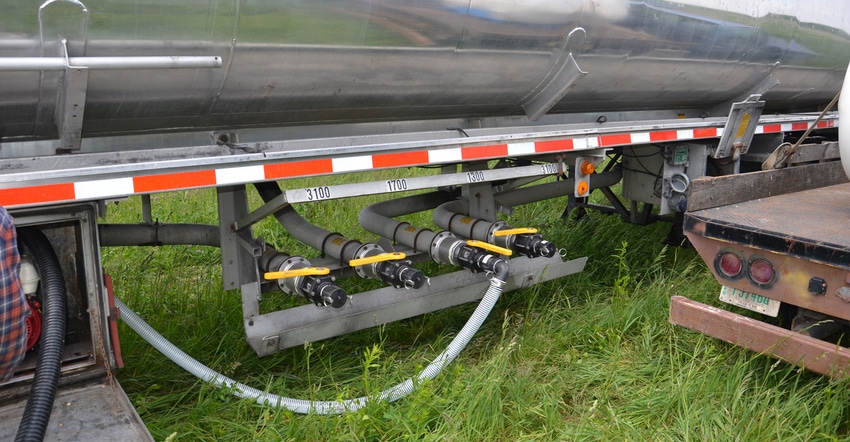
No one intends to spill pesticides, fertilizer or diesel fuel, but accidents happen. Being prepared and taking quick action can make a huge difference in protecting one’s property.
“If you have a spill, your quick actions during the first few minutes can make a difference in the spill being contained or entering the waters of the state,” says Fred Whitford, a Purdue University Extension specialist and director of Purdue Pesticide Programs. “If you can contain the spill and keep it out of water, then cleanup becomes easier and cheaper.”
What to do
Some suggestions of what to do apply specifically to pesticides, while others apply to any spill:
Report the spill. If a spill occurs, you’re required by law to contact the Indiana Department of Environmental Management if it threatens the waters of the state. The number for IDEM’s 24-hour spill hotline is 888-233-7745. Write this number down! Calling the hotline also will trigger help to deal with the spill, Whitford notes. You’re also required to call the National Response Center at 800-424-8802. If there is potential for fish or wildlife exposure, call the Indiana Department of Natural Resources at 800-847-4367.
Plan for equipment needs. Have the proper personal protective equipment, Whitford says. Have absorbent material available that could contain a spill, and have access to tools to create a temporary earthen dike. Keep clean water in portable holding tanks and carry highway warning signs, caution tape, a first aid kit, a fire extinguisher, tools, a flashlight and an eyewash bottle in your truck. Think about cleanup equipment, such as shovels and brooms, dust pans and squeegees, and plastic sheeting. Including a diaphragm pump with a hose screen and throwing in reflective vests for those cleaning up are good ideas.
Stay calm. “Exercising common sense and keeping calm will get you through a spill emergency,” Whitford says. Assess the situation; then control the spill at the source, and do your best to keep it out of water. If you’re an employee, notify the manager. Call for assistance and keep people away who don’t need to be there.
Be prepared with key information. When reporting spills, IDEM will ask a series of questions about the spill. The information you provide is critical, Whitford says. Provide the name and telephone number of a contact person, exact location and time of the spill. Then identify what was spilled and an estimate of how much was released. Explain the potential for off-site movement, any anticipated risk to people or animals, and what you’ve done so far. Indicate if medical attention is needed.
Carry proper information when transporting pesticides. You should have copies of pesticide labels and material safety data sheets for each product with you, Whitford says. It’s also recommended to carry the Department of Transportation Emergency Response Handbook and the DOT Hazardous Materials Guidebook in case spills occur on highways.
Know contact information. Have numbers for the county sheriff, state police, fire department, local ambulance, doctor and many more professionals compiled, with a copy in each vehicle, Whitford suggests. Don’t count on remembering them. You should also have contact info for Chemtrac (800-424-9300), the Indiana Poison Control Center (800-222-1222) and the Office of Indiana State Chemist (765-494-1585).
For more complete information about how to prepare for and react in case of a spill, check out Pesticides and Spill Management, PPP-28.
About the Author(s)
You May Also Like




